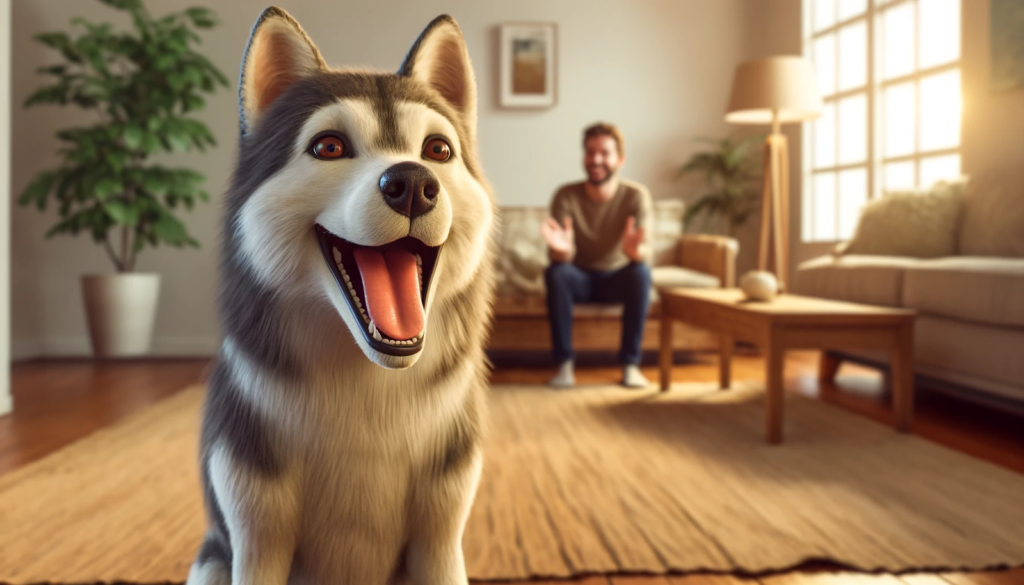Siberian Huskies are famous not just for their stunning looks and energetic nature, but also for their unique vocalizations. But do they bark a lot? The answer might surprise you.
Unlike many other breeds, Huskies aren’t heavy barkers — but they are extremely vocal in other ways. From howling and “talking” to whining and chirping, Huskies use a wide range of sounds to express themselves. Understanding this vocal behavior is key to managing it — and even enjoying it.
In this article, we’ll explore the vocal tendencies of Siberian Huskies, what their different sounds mean, and how to manage excessive noise if it becomes a problem.
Do Huskies Bark Like Other Dogs?
Short answer: Not usually.
Siberian Huskies tend to howl, whine, or “talk” more than they bark. When they do bark, it’s usually:
- To alert you of something unusual
- During play or excitement
- If they’re bored and want attention
- As part of communication with other dogs
Most Husky owners say their dog rarely barks compared to breeds like German Shepherds, Beagles, or Terriers.
What Sounds Do Huskies Make Instead?
1. Howling
The Husky’s most iconic sound. It’s deep, long, and can carry for miles — especially at night.
Why they howl:
- Responding to sirens or music
- Expressing loneliness or separation anxiety
- Trying to communicate across distance
- Boredom or excess energy
2. Talking
Huskies are known for their “woo-woo” sounds — vocalizations that sound like they’re trying to speak.
Examples:
- “Aroo!” when excited
- “Wooo” when being dramatic
- Groaning when told “no” or asked to sit
They use this talking behavior to interact with humans, especially when they want something.
3. Whining
A high-pitched sound used to signal discomfort, anxiety, or desire.
Common causes:
- Waiting for food or a walk
- Wanting to go outside
- Separation anxiety
- Needing attention
4. Yipping or Chirping
Sometimes heard during play or when they’re excited about guests, toys, or other dogs.
Why Are Huskies So Vocal?
Their vocal nature is a result of:
- Pack ancestry: Communication was key for working together over distances
- High intelligence: They express complex emotions and needs
- Close bond with humans: They feel comfortable “speaking up” to their people
- Working background: They were expected to be alert, aware, and communicative
Is Vocalization a Problem?
Not necessarily. Most Husky vocalizations are:
- Harmless
- Entertaining
- A sign of a healthy, expressive dog
But it can become a problem if:
- You live in an apartment with thin walls
- Your dog howls when left alone (separation anxiety)
- The noise is constant and disruptive
How to Manage Excessive Husky Noise
1. Exercise, Exercise, Exercise
A tired Husky is a quiet Husky. Make sure they get:
- 60–90 minutes of exercise daily
- Mental stimulation (training, puzzle toys, games)
- Consistent structure and routine
Most excessive vocalization comes from boredom or pent-up energy.
2. Ignore Attention-Seeking Noise
If your Husky learns that whining or howling gets them what they want, they’ll do it more.
Instead:
- Wait for silence before offering what they want
- Reward calm behavior
- Be consistent across all family members
3. Use Commands Like “Quiet” or “Enough”
Teach your Husky to respond to vocal cues using:
- Timing: Say “quiet” the moment the noise stops
- Rewards: Treat them for obeying
- Repetition: Practice consistently
Note: Never yell — it can excite them more or make them anxious.
4. Create a Calm Environment
Background noise like white noise, TV, or calming music can help:
- Reduce reaction to outside sounds
- Ease separation anxiety
- Provide a sense of security when alone
5. Don’t Punish Natural Behavior
Remember: Huskies are born to be vocal. Trying to eliminate it entirely can frustrate your dog and harm your relationship.
Instead, focus on channeling the behavior and managing when and where it happens.
When to Be Concerned About Husky Vocalization
In some cases, constant or unusual vocalization could be a sign of:
- Pain or illness
- Discomfort from heat or cold
- Anxiety or stress
- Cognitive decline in senior dogs
If your Husky starts vocalizing in new ways or more frequently without cause, consult a vet to rule out health issues.
Final Thoughts: Embrace the Conversation
Siberian Huskies are not barkers — they’re talkers. Their vocal expressions are part of what makes them so lovable, quirky, and unique. While the sounds might catch you off guard at first, most Husky owners grow to appreciate (and even laugh at) their dog’s expressive personality.
The key is finding a balance: encouraging communication while setting boundaries. With exercise, consistency, and understanding, your Husky’s voice becomes less of a nuisance and more of a charming trait.






